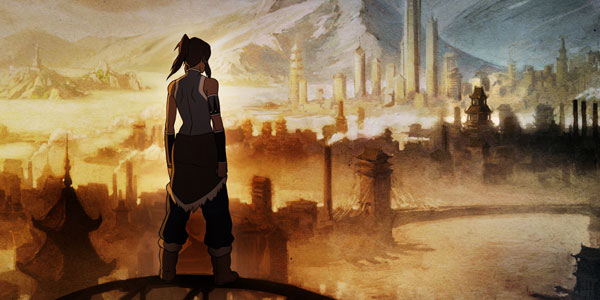I love heroic epic fantasy novels. If I immerse myself in the writing, I can be the hero and explore a new, different world. Most epic fantasy novels are set in a medieval style setting, pre-technology. And the gender roles from our own medieval history are standard in these new worlds.
But some authors spin an entirely new world, with gender equality seamlessly woven into the fabric of the culture. This type of thoughtful worldbuilding is my go-to for enjoyment.
By gender equal, I’m speaking of a society where people of equal class and ability are permitted the roles they are qualified for, no matter their gender. These societies seem to exist more commonly in Urban Fantasy and Science Fiction, with Epic Fantasy trailing.
We fantasy authors can imagine such rich new worlds, with dragons, giant felines, dwarves and elves. But it can be hard to create worlds that change how men and women live their lives and interact with each other. My protagonist Sulis in Desert Rising grew up in a desert culture where women and men go where destiny calls. But I found myself trying to assign roles where they didn’t fit the characters’ personality—because of the roles I, as a woman, take on in my life!
Here are a few go-to novels for gender equal societies. In most of these novels, gender equality isn’t the theme. It is simply a part of the society, written unselfconsciously.
Valdemar—Mercedes Lackey’s Arrows of the Queen
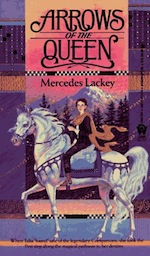 The land of Valdemar is one I’ve visited over and over, enjoying each reread. Valdemar is refreshingly egalitarian, with just a few small sects of poverty and prejudice. Kings and Queens have ruled through the ages. Men and women mingle in the ranks of Healer, Herald and Bard, and every pledge has the same training and expectations. Sexuality between men and women is also not constricted. The societies of the Tayledras and the Talesedrin in the same world are also lively and egalitarian.
The land of Valdemar is one I’ve visited over and over, enjoying each reread. Valdemar is refreshingly egalitarian, with just a few small sects of poverty and prejudice. Kings and Queens have ruled through the ages. Men and women mingle in the ranks of Healer, Herald and Bard, and every pledge has the same training and expectations. Sexuality between men and women is also not constricted. The societies of the Tayledras and the Talesedrin in the same world are also lively and egalitarian.
Hawk Haven/Bright Bay—Jane Lindskold’s Through Wolf’s Eyes
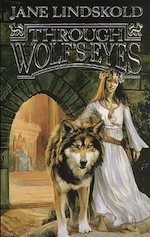 The society Lindskold created in Hawk Haven is not egalitarian, but it is gender equal. There are distinct class differences, but both women and men inherit and both sexes compete to see who will become heir to the throne. Men and women of the upper class ally in marriage to consolidate power in the political sphere. In the lower classes, husbands and wives are equal partners in business and life. This works well with the character of Firekeeper, raised by wolves and confused by society’s restrictions. Adding gender restrictions would have created another burden on the character. This is an excellent example of a fat, juicy, epic fantasy series creating depth with unrestricted gender roles.
The society Lindskold created in Hawk Haven is not egalitarian, but it is gender equal. There are distinct class differences, but both women and men inherit and both sexes compete to see who will become heir to the throne. Men and women of the upper class ally in marriage to consolidate power in the political sphere. In the lower classes, husbands and wives are equal partners in business and life. This works well with the character of Firekeeper, raised by wolves and confused by society’s restrictions. Adding gender restrictions would have created another burden on the character. This is an excellent example of a fat, juicy, epic fantasy series creating depth with unrestricted gender roles.
Paksenarrion—Elizabeth Moon’s Oath of Fealty
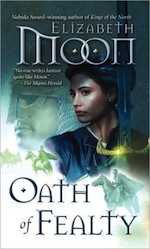 I was deeply happy when Moon, after an almost twenty year hiatus, released five more books in the world of Paksenarrion. This world is wonderfully varied. Elves, dwarves, gnomes, rangers—all the beloved tropes of fantasy are represented. I love the egalitarianism of the military ranks—men and women bunk together, train together and fight together. They are judged and promoted based on talent and accomplishment. A former Marine, Moon instills a comfortable comradeship that defies gender stereotypes, and that feeling is spread throughout her entire world. A true immersive pleasure of politics, adventure and heroic sacrifice.
I was deeply happy when Moon, after an almost twenty year hiatus, released five more books in the world of Paksenarrion. This world is wonderfully varied. Elves, dwarves, gnomes, rangers—all the beloved tropes of fantasy are represented. I love the egalitarianism of the military ranks—men and women bunk together, train together and fight together. They are judged and promoted based on talent and accomplishment. A former Marine, Moon instills a comfortable comradeship that defies gender stereotypes, and that feeling is spread throughout her entire world. A true immersive pleasure of politics, adventure and heroic sacrifice.
Tanya Huff’s The Quarters
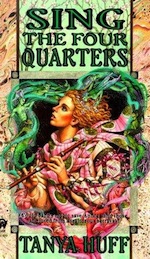 I love Huff’s worlds. Her Confederation Science Fiction series is another wonderful egalitarian military read. But for pure fantasy pleasure, Sing the Four Quarters is what I reach for. The characters love whomever they please, without prejudice. The Bards sweep me along on their Walks, into a culture where men and women work side by side in the trades they trained in. Sexuality is a gift and is not used as a weapon.
I love Huff’s worlds. Her Confederation Science Fiction series is another wonderful egalitarian military read. But for pure fantasy pleasure, Sing the Four Quarters is what I reach for. The characters love whomever they please, without prejudice. The Bards sweep me along on their Walks, into a culture where men and women work side by side in the trades they trained in. Sexuality is a gift and is not used as a weapon.
The Den of Inequity/Sanctuary in Ephemera—Anne Bishop’s Sebastian
 In Daughter of the Blood, Bishop reverses power between the sexes, and corrupt women become debased and cruel with unlimited power. I was so excited by the novelty of that world, I gave it to a male friend. He gave it back with a wince, only partially read. But in the world of Ephemera, Bishop creates several landscapes in which women and men (and incubi and succubi) take the roles they were born to, without prejudice. I love the equal opportunity darkness and depravity of the Den of Inequity, which is balanced so nicely by the serenity of Sanctuary. Both sides of human nature are shown in this original world. Bishop is a master at exploring sexuality and power between the sexes.
In Daughter of the Blood, Bishop reverses power between the sexes, and corrupt women become debased and cruel with unlimited power. I was so excited by the novelty of that world, I gave it to a male friend. He gave it back with a wince, only partially read. But in the world of Ephemera, Bishop creates several landscapes in which women and men (and incubi and succubi) take the roles they were born to, without prejudice. I love the equal opportunity darkness and depravity of the Den of Inequity, which is balanced so nicely by the serenity of Sanctuary. Both sides of human nature are shown in this original world. Bishop is a master at exploring sexuality and power between the sexes.
Kelley Grant grew up in the hills of Ohio’s Amish country. Her best friends were the books she read, the stories she created, and the forest and fields that inspired her. Her epic fantasy novel Desert Rising is available now from HarperVoyager.










